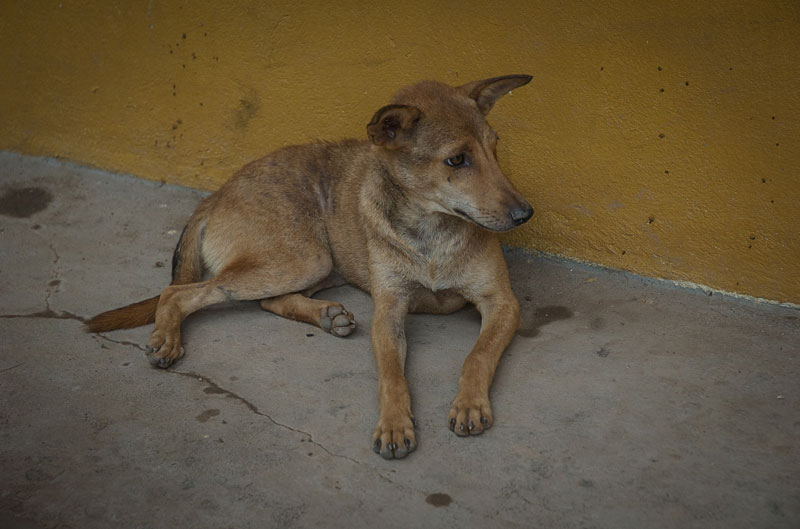Government officials and public health workers met with about 100 students at the Ministry of Health’s school of nursing in Phnom Penh on Monday to mark World Rabies Day, calling for a united effort to eradicate a virus that kills hundreds of Cambodians each year.
“It is possible to eliminate rabies in Cambodia but we need to start now to end rabies together,” said Reiko Tsuyuoka, the World Health Organization’s emerging disease surveillance and response team leader in Cambodia.

Every year, an estimated 59,000 people die worldwide from rabies, and according to epidemiologists at the Institut Pasteur du Cambodge (IPC), about 800 of those deaths occur in Cambodia.
“This is an absolutely titanic amount,” said Arnaud Tarantola, head of epidemiology at IPC. “It’s more deaths than we have from dengue or malaria.”
Rabies mainly infects dogs, cats, monkeys and other animals, but can be transmitted to humans through the saliva of a rabid animal. Once a person contracts rabies, which can take hold within days or weeks of being bitten, there is no cure and it is fatal.
“About 20 to 30 percent of the people that we get at IPC come from Phnom Penh, the rest come from the provinces,” said Mr. Tarantola, adding that the Rabies Prevention Center at IPC receives about 22,000 rabies patients per year, the most of any medical center in Cambodia.
However, the cost of travel back and forth to Phnom Penh is not feasible for some.
“Depending on if it’s the rice harvesting season, you have to make a choice between vaccinating your child and preventing what could be rabies, or having a hard time feeding your family the whole year,” Mr. Tarantola said.
So starting last year, the ministries of health and agriculture began working with IPC and several international health organizations to develop a national strategy to eliminate rabies by 2020.
The National Rabies Plan aims to control the spread of the virus by setting up prevention centers throughout Cambodia that would allow people in rural areas to have timely and affordable access to vaccinations and treatment.
It also advocates for rabies vaccinations for an estimated 5 millions dogs—which cause the vast majority of rabies cases in humans— living in Cambodia, as well as an education campaign on the treatment and prevention of the virus.
Those at Monday’s meeting said that reaching such ambitious targets would require significant commitments by both the government and partner organizations, and the cooperation of dog owners.
The plan calls for the establishment of rabies treatment clinics in every province, along with outreach efforts to help vaccinate 70 to 80 percent of the country’s dogs.
“There’s no way we can vaccinate 5 million dogs next year with the Ministry of Health’s budget,” said Mr. Tarantola. “We need to make laws so that people register their dogs and are responsible for immunizing them.”
Rabies vaccinations for dogs cost between $3 and $5 and must be repeated every year.
“This is the concern of 15 million Cambodians and we need a lot of resources,” said Lotfi Allal, Cambodia team leader for the Food and Agriculture Organization.
“If all owners vaccinated their dogs, rabies would be eradicated in two years.”



